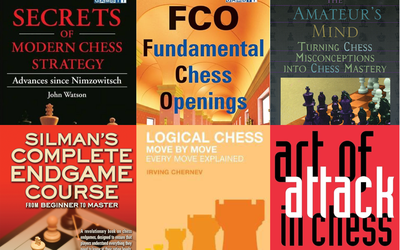
How many cheaters do you meet in a year on Lichess?
Examining my games against people banned for cheatingOne of the most serious problems facing the chess community is that of cheaters. It's so easy to have a computer analysis open on another screen while you play a game that unfortunately some people are unable to resist the temptation. Accusations of cheating have reached even the highest levels of chess, provoking a discussion on how widespread cheating is.
Unfortunately, most of the discussion is so vague as to be meaningless. There are countless posts online about how someone feels cheating has gotten more common or it seems to them that cheaters are everywhere, but there's nothing solid to back it up. So, I decided to go through my games during the past year and see how many cheaters I came across.
Obviously this is purely anecdotal evidence and based solely on my personal experience, but I think it's still more useful than most posts on the topic. To be objective, I will only count the accounts that were suspended by Lichess, this is not a list of my suspicions. You can be suspended by Lichess for other reasons such as toxic or abusive behaviour, but cheating and rating manipulations are the most common. Perhaps there are cheaters out there who weren't caught, but I'm going to stick with the more certain cases.
In total, I played 738 games between September 1st 2022 and September 1st 2023 and 17 of those accounts were suspended. I rarely rematch people, so almost all these games were against different accounts. In other words, about 1 in 43 games was against a cheater.
| Total games | Cheaters | Percent | |
|---|---|---|---|
| Rapid | 311 | 10 | 3.2% |
| Blitz | 342 | 5 | 1.5% |
| Chess960 | 75 | 2 | 2.7% |
| Total | 728 | 17 | 2.3% |
The most notable feature from my games is that I was twice as likely to encounter a cheater while playing rapid as I was while playing blitz. I suspect this is because longer games gives people more time to cheat and you can't look at an engine if you only have a couple of seconds for every move. I presume that if I had played more than a handful of classical games, I would have come across an even higher rate of cheaters.
Interestingly, most of the cheaters are concentrated at the start of the 12 month period, I faced 7 cheaters in September and October 2022. On the other hand, I haven't faced a single cheater in the last 3 months. The Hans Niemann cheating controversy broke out in September last year and I wonder if that inspired more people to cheat? Perhaps the allegations that cheating was easy and common in online chess lead people to think they could get away with doing it themselves?
How to tell if someone is cheating?
There are a few common features often seen in cheaters.
- Perfect play: This is the most obvious sign. If someone plays a completely perfect game without a single mistake or even a slight inaccuracy, they might be cheating. Sometimes people get lucky and have a fantastic game and if one player blunders early on, their opponent will get a near perfect accuracy score if they simply maintain the position. However, if someone regularly has completely perfect games that can be suspicious.
- Regular move times: If someone makes every move in exactly 5 seconds, that is suspicious. In any normal game the move time should vary considerably, some moves are so obvious they take less than a second whereas others may require several minutes of calculation. But sometimes cheaters just wait 5 seconds for their computer to load the best move and then make it.
- New account: The longer someone cheats, the higher their chance of getting caught. So if you see a brand new account playing suspiciously, it could be that the anti-cheating system hasn't had time to become aware of this account.
- Engine moves: There are some moves that a computer engine will make that are highly unlikely to be made by a human. This is the hardest to prove because it is completely subjective, because maybe someone did genuinely see a very complex idea or just coincidentally made the right move.
None of these points is definitive proof, merely grounds for suspicion. Cheaters often try to hide their suspicious behaviour and may not cheat for the whole game but only for a couple of crucial moves. Some may cheat just to get a winning position and then play unassisted. Some play many normal games and only cheat in occasional games, to make it less obvious.
A funny feature of Lichess is that when someone is banned for cheating, their account isn't deactiviated. In fact, they can still play games - but only against other cheaters. They get removed from the general playing pool and get put into a pool with only accounts that have also been banned for cheating. Many of the accounts featured below are still active in some sort of purgatory where they play perfect games but their rating never changes, no matter the result.
The Classic Cheater
If you wonder how to tell if someone is cheating, this account has some of the classic hallmarks. It was a brand new account, created that very day, and played a flawless game with 97% accuracy and only 9 centipawn loss. Only a single inaccuracy marred an otherwise perfect game.
Computer speed
The most recent cheater I faced was 4 months ago in a game where honestly, I played pretty poorly. My opponent's play wasn't too suspicious, the only impressive move was Rook takes e6 on move 17, which is findable. But what was suspicious was the lightening speed my opponent played with. Almost all of their moves took as little as 3-5 seconds and their longest move took only 10 seconds, which meant they ended with more time than they began.
Cheats but resigns
I remember thinking how odd this game was at the time. I was playing someone 500 points lower than me, but instead of an easy game, they pulled off an incredible tactic that won my Queen on move 10. I tried to fight on and build some counter-play, but I didn't have much hope - when suddenly my opponent resigned. I was baffled, they were clearly winning and my counter-attack could be easily stopped.
I looked at their other games in the tournament we were playing and found the exact same thing. In their first game, they used the exact same tactic to win the Queen but resigned in a winning position. In another game, they only played 4 moves before resigning despite being up +1. It seems this person liked to cheat but would deliberately lose the game to make it less obvious.
Cheaters even play Chess960
It's odd that cheating has even spread to the chess variants, such as Chess960, although perhaps this account cheated in a standard chess game. It's remarkable how many games are on this account, they have played over 56,000 rated games. In a way it's sad that someone would spend so long playing genuine chess only to throw it all away.
This player claims to have a FIDE rating of 2850, which would make them the best chess player in the world, with a rating even higher than Magnus Carlsen.
Win before they can cheat
Although it may seem strange, there are several games where I won against someone who was suspended for cheating. How is this possible? One way is to win before they have time to start their engine. In this game my opponent blitzed out several moves so fast that they blundered and lost the game before they realised what was happening. I guess they thought they wouldn't need the engine until the midgame.
No one cheated in this game
Sometimes cheaters play game without any help in order to hide their tracks. I can say I'm pretty certain that no one cheated in this game where I committed 3 blunders and my opponent 4, in the space of only 10 moves.
More blog posts by TeoKajLibroj

Irish Chess Union gives massive rating boost to Irish chess players
How I gained 400 points without playing a game
6 chess books I tried to read
And which ones I would recommend
Has the chess boom reached OTB tournaments?
Have Irish tournaments experienced the chess boom?
